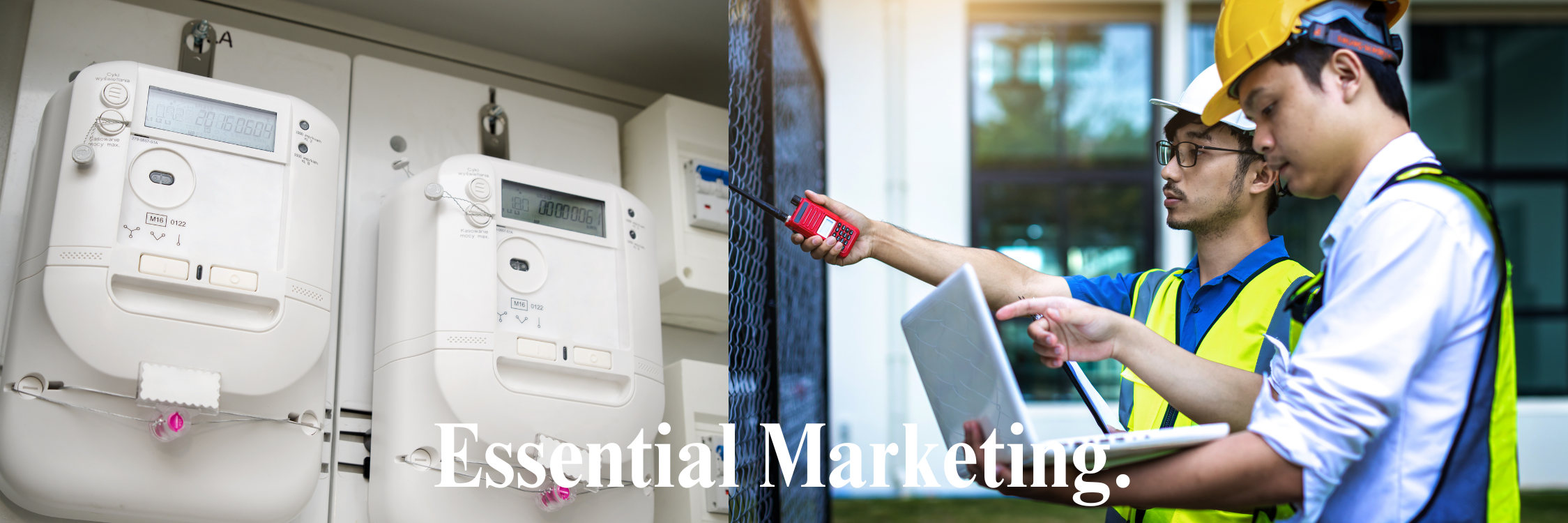
What business electricity tariffs are available?
Unlike domestic energy, all commercial electricity tariffs will have a minimum contract term. We’ll talk you through some.
- Fixed-rate tariffs – tariffs where the rate you pay per unit of electricity is fixed. While on a fixed-rate tariff you may not benefit from reductions in the market cost, as a business you’ll have price consistency, which is useful for planning finances and budgeting. It’s standard for businesses to opt for fixed-rate tariffs rather than flexible ones.
- Deemed rate tariffs – sometimes businesses may find themselves without a new contract lined up; this could occur if you’ve not yet agreed a new contract with your current electricity provider, or have moved premises and need to arrange an assessment. Electricity prices are higher on deemed contracts, but once you find a better deal you only need to give 28-days’ notice to switch providers.
- Rollover contracts – these will automatically rollover your current contract, meaning you’re locked in for what is, typically, another year. Electricity prices are considerably higher on these renewal plans. This may seem unfair, but it is legal and does not break any rules. This is unless your business is a micro-business (if it uses less than 200,00 kWh of gas or 55,000 kWh of electricity per year), where suppliers are required to send a letter 60-120 days before the contract is due to end. Rollover tariffs have mostly been replaced by deemed rate tariffs.
To get the best electricity deal for your business, you should reject renewals, terminate your current contract and shop around for a more competitive plan instead.
What affects business electricity prices?
What your business ends up paying in electricity costs will depend on a huge range of factors.
As we mentioned, most businesses run on fixed-rate tariffs, but with flexible rates you could find your bill either increasing or decreasing with respect to market rates. It’s a gamble only you can decide to take! Standing charges, which is the cost of having access to energy, will also be included in your bill.
Of course, the size of your premises, along with where you’re based, plays a huge role – we don’t need to stress the price difference on bills for small independent shops versus those of the Google offices – and so will the nature of your business. Establishments functioning for 24 hours will use more electricity than daytime operators, as will companies using plenty of technology or electrical equipment.
What electricity meter you have installed – there are several types, for example standard, half-hourly or economy meters – can also influence how your electricity bill is calculated.
How to get Cheap Business Electricity
If you’re looking to reduce your electricity costs as a business, there are a few steps you can take.
Consider installing a different type of electricity meter, or better yet, a smart meter. Smart meters monitor your energy consumption and you can learn the habits of your business using them, meaning you can get a truly bespoke commercial electricity deal. There are even governmental support programmes to allow small businesses in particular to install these, as part of their ongoing target to reduce energy consumption.
Following, see if your business can adopt a greener model: low-energy lightbulbs or switches on timers can add up to big savings, as well as turning off technology rather than leaving equipment on standby.
However, there’s undeniably no better way to save money on your electricity bill than to reject renewal offers from your current supplier: you will almost always get more competitive rates by switching providers.
Tried and tested, the best route to cheap business energy is to shop around for a new deal. Start by running an electricity price comparison. Be sure to have as much information to hand as possible, as this will allow you to get the most accurate quote going. You can look to your latest bill to see your energy consumption in kwh, along with a breakdown of your expenditure.
How do I switch business electricity suppliers?
You can’t terminate a contract early apart from in extenuating circumstances, such as negligence or non-fulfilment of duties on the part of the supplier. But you can be prepped to switch providers as soon as your current contract ends, so now is always a good time to start hunting!
Once you’ve chosen your new electricity supplier, you’ll need to let them know certain information such as your MPAN (Meter Point Administration Number), which allows them tap into your electricity meter, along with details on your current supplier’s tariff.
Your new energy provider will handle the transfer process and all that lovely admin. Which means you can sit back and relax, watching money saved on your electricity bill be injected back into the business. You can keep doing what you do best, but even better.
MORE BUSINESS ENERGY GUIDES
- Top Tips for Better Business Energy Quotes
- No Standing Charges
- Fixed vs Flexible Business Energy Contracts
- How Your Credit Score Affects Your Business Energy Pricing
- Business Energy Efficiency
- Letter of Authority
- Business Energy Hedging
- Making Your Office Eco-Friendly
